What is an RV Water Softener?
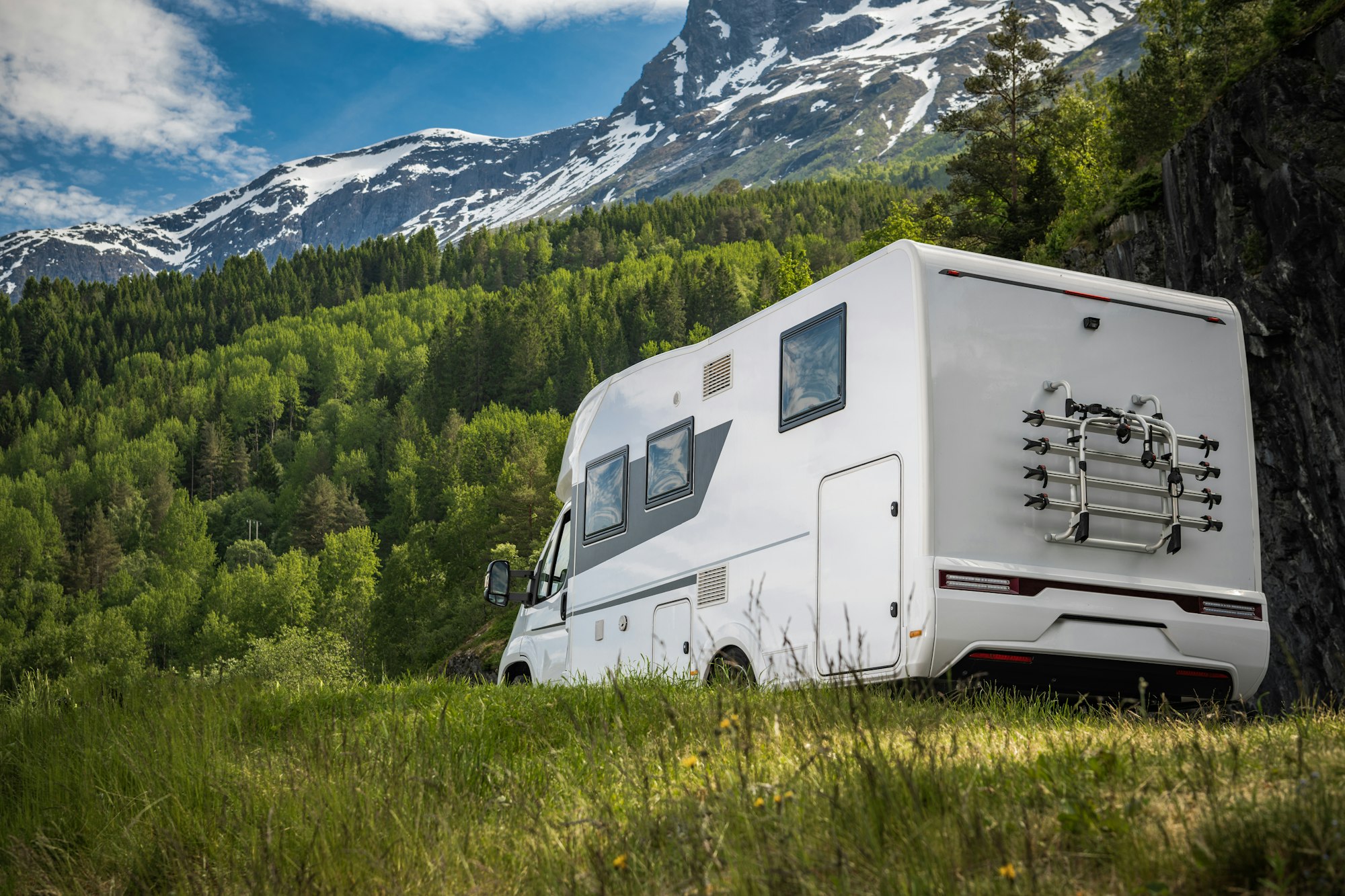
Shop Our Products
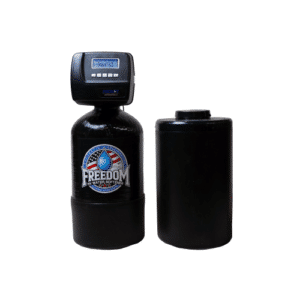
Freedom RV Water Softener System
Specifically for RV and fifth-wheel owners, this high-quality system guarantees your RV’s water is pure,
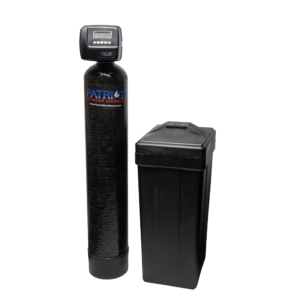
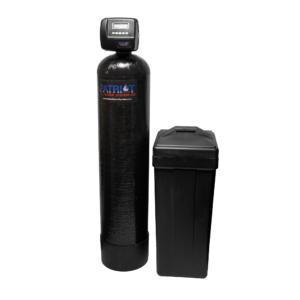
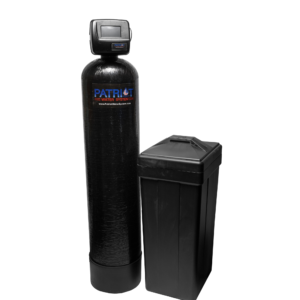
An RV water softener removes minerals like calcium and magnesium from your RV’s water supply. By doing so, it prevents scale buildup, protects your appliances, and improves the quality of your water for everyday use.
Functionality
RV water softeners use an ion exchange process, swapping out hard water minerals for sodium ions. This keeps your plumbing safe from mineral damage and ensures your appliances run efficiently.
Some benefits of an RV water softener include reduced staining, softer water for showers and laundry, and a longer appliance lifespan.
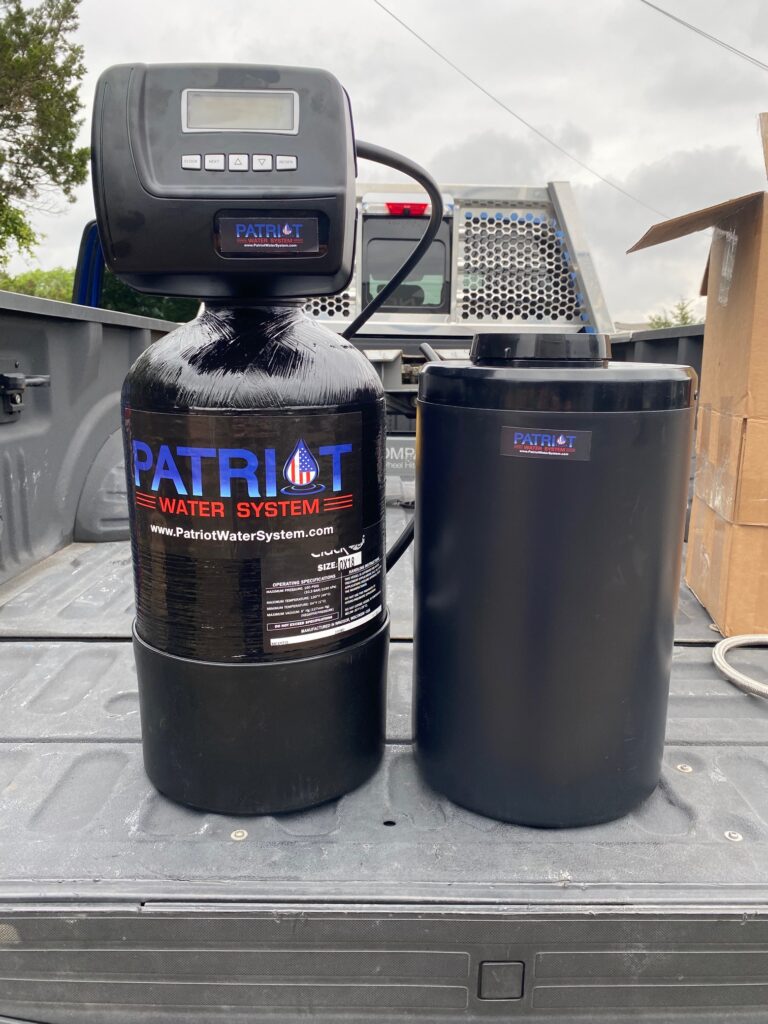
Differences from Residential Water Softeners
- Size: RV units are compact to fit small spaces; residential units are much larger.
- Portability: RV softeners are lightweight and easy to move, while home systems are stationary.
- Installation: RV systems use simple, temporary hookups; home units are permanently installed.
What are the Types of RV Water Softeners?
RV water softeners come in two main varieties, portable and self regenerating units. Each type offers unique advantages depending on your water needs and travel habits.
Portable RV Water Softeners
Overview:
Portable RV water softeners are popular for their convenience and affordability. Common options include the On The Go Portable Water Softener and the Camco TastePURE Water Softener, typically priced between $200 and $350. These units are easy to set up and store, making them ideal for RV travelers.
Basic features of portable units are compact designs, simple installations, and affordability.
Pros and Cons:
- Pros: Affordable, easy to store and transport, simple installation.
- Cons: Needs manual regeneration, has a limited capacity, and may have a shorter overall lifespan.
Read our guide to learn how to manually regenerate a water softener in 4 easy steps.
Self-Regenerating RV Water Softeners
Overview:
Self regenerating RV water softeners are advanced units that automate the regeneration process. The only self regenerating unit on the market is the Freedom Water Softener System, providing consistent water softening without manual intervention, priced at $1,495.
Basic features include automatic regeneration, higher capacity, and durability.
Pros and Cons:
- Pros: Low maintenance, higher efficiency, and ideal for frequent travelers.
- Cons: More expensive and generally heavier than manual models.
What is the Best RV Water Softener?
Choosing the best RV water softener depends on your needs. Portable models are budget-friendly and easy to move, while self-regenerating units offer greater convenience and efficiency for those on longer or more frequent RV trips.
For a high-quality, low-maintenance solution, the Freedom Water Softener System is the best RV water softener.
Benefits of Soft Water
Hard water can cause problems that affect both your comfort and the health of your RV. The table below shows the benefits of soft water compared to the detriments of hard water.
| Soft Water | Hard Water |
| Comfortable showers, better cooking, and easier cleaning | Hard water leaves a dry, itchy feeling on skin and dries out hair |
| Consistent performance across different campgrounds | Water quality varies, leading to potential issues while traveling |
| Less maintenance needed and peace of mind on long trips | Mineral buildup causes clogs and reduces water flow requiring time for repairs |
| Reduces appliance repairs, extends plumbing life, and lowers energy costs | Scale buildup leads to expensive appliance damage and higher maintenance bills |
| Dishes, glassware, and RV fixtures stay clean and stain-free | Hard water leaves spots on dishes and rust stains on fixtures |
| Removes unpleasant metallic and sulfur odors for fresh drinking water | Hard water has a metallic or off-putting odor, affecting drinking and cooking |

Combining RV Water Softening with Filtration
What is a Water Filter and How is it Different?
A water filter removes contaminants like bacteria, chemicals, and sediments to improve water safety and taste. Unlike water softeners, which remove hardness minerals, filters focus on eliminating impurities that affect water quality.
Why a Combo Works the Best
Combining water softening with filtration provides comprehensive water treatment for your RV. Water softeners handle the removal of hardness minerals like calcium and magnesium, preventing scale buildup that can damage your plumbing and appliances. Meanwhile, water filters remove contaminants such as chlorine, bacteria, and sediment, improving the safety, taste, and smell of your water.
Do You Need an RV Water Softener?
Assessing Your Water Needs
Deciding if you need an RV water softener depends on a few factors, such as how often you travel, the hardness of water at your usual destinations, and whether you’re experiencing problems like scale buildup, dry skin, or appliance damage from mineral deposits.
To help you make an informed decision, we’ve created a simple checklist. Answering “yes” to several of these questions might mean you could benefit from an RV water softener:
- Do you frequently experience scale buildup in your RV’s plumbing?
- Are your appliances wearing out faster than expected?
- Do you notice dry skin or hair after showers?
- Is the taste or odor of your water unpleasant?
- Are water spots common on dishes and surfaces?
Invest in Quality for a Superior RV Experience
Investing in a high-quality system like the Freedom RV Water Softener System Bundle delivers exceptional long-term value. It ensures your RV remains in peak condition, saves you money on repairs and replacements, and simplifies your water management.
FAQ
Is it Okay to Drink Softened Water?
Yes, it is generally safe to drink softened water. However, because the softening process replaces calcium and magnesium with sodium, the sodium content may be a concern for individuals on low-sodium diets or those with certain health conditions. The increase in sodium is usually minimal, but you can consult your doctor if you have specific dietary restrictions.
How Long Do RV Water Softeners Last?
RV water softeners typically last between 5 to 10 years, depending on the quality of the unit and how well it is maintained. Regular regeneration, proper cleaning, and avoiding contamination from dirt or debris can extend the lifespan of your system.
Is Soft Water Good For Your Hair?
Yes, soft water is excellent for your hair. It allows shampoos to lather more effectively, leaves hair feeling smoother, and reduces dryness. Soft water also helps retain the natural oils in your scalp, making your hair look shinier and healthier compared to using hard water, which can make hair feel dry and brittle.
How Much Does a Water Softener Cost?
The cost of a water softener can vary significantly based on the type and features. For manual regenerating RV water softeners, prices generally range from $200 to $600 for portable models. High-quality, self regenerating units may cost $1,000 or more. Additional installation and maintenance costs should also be considered when budgeting.
Share:
Talk to A Water Quality Expert
Shop Our Products

Freedom RV Water Softener System
Specifically for RV and fifth-wheel owners, this high-quality system guarantees your RV’s water is pure,



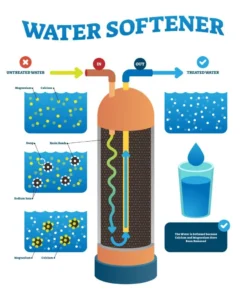
All 12 Pros & Cons of Salt vs. Salt Free Water Softeners
The main differences between salt and non-salt water softeners include their effectiveness at softening water, maintenance requirements, environmental impact, operational costs, and health considerations. This guide will help you understand these differences and decide which type of water softener is best for your needs.

6 Tips on How to Choose A Water Softener
To choose the right water softener, consider your household size, water usage, water hardness, regeneration method, salt-based vs. salt-free systems, installation, and maintenance needs.
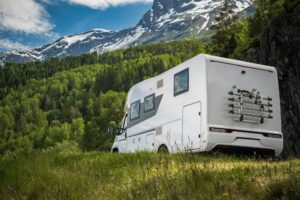
What is an RV Water Softener?
An RV water softener is a device that removes hard water from your RV’s water supply, preventing buildup and protecting your plumbing and appliances. Read our guide to learn all about the basics of RV water softeners.
Join Our
Newsletter
Get the latest information, and exclusive offers on water softening and purity solutions
